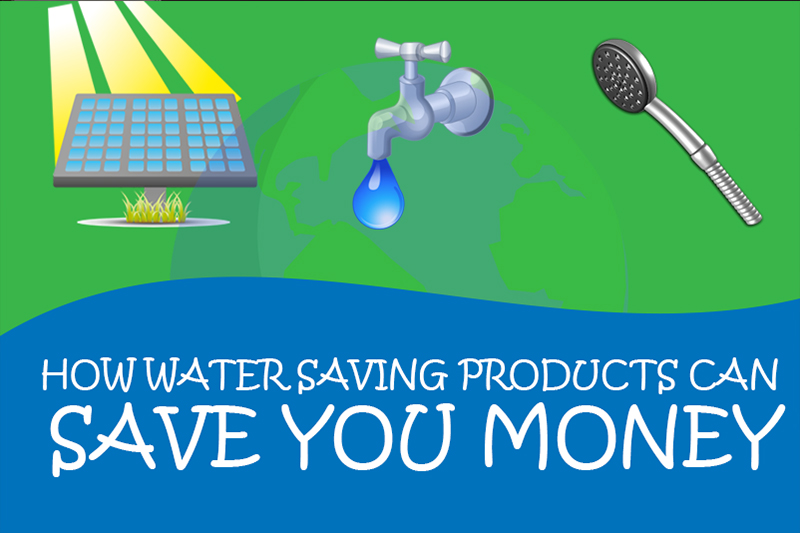
Studies have shown that water consumption accounts for a large percentage of the energy costs of an average UK household, far more than you might be aware of. According to the Energy Saving Trust, approximately 17% of an average gas heated household's energy bill is used to supply the hot water demand of taps, baths and showers. This averages to about £100 per year. While heating water is an unavoidable expense, it is possible to reduce your water usage, protecting the environment and saving money at the same time.
Insulating your hot water tank with a tank jacket will keep it warm for longer and can save money on your heating bill. For a more widespread effect, it's also possible to insulate your pipes, which will help your taps reach and maintain your desired temperature more quickly. Switching to gas central heating from electricity or oil is also an economically sensible decision; if your home isn't connected to a gas source, check with your local supplier as they may cover some or all of the cost to connect it.
Solar panels can make a major difference to your energy bills and, after the cost of purchase and installation, can provide the majority of your heating energy requirements. This is expensive in the short term but as a long term investment, they can make your central heating essentially take care of itself for years to come. It's also possible to install a Passive Flue Gas Heat Recovery Device (a PFGHRD), a small unit that attaches to your boiler and recycles much of the flue gas that is vented during the heating process. This gas is then used to heat water, reducing the load on the boiler and thus the cost of your hot water supply.
Water efficient showerheads are a new, simple solution to reducing water expenditure. They concentrate the flow and increase the pressure of shower spray, resulting in a quicker clean. This is ideal for mixer and power showers with an already high water flow, where they can further improve the pressure. Choosing a bathtub with the minimum capacity suitable for your needs is a sure way to decrease water usage. An average bath capacity is about eighty litres, so even a bath that only seems slightly smaller could use several litres less per use.
When choosing a new washing machine or dishwasher, or any other appliance that requires a regular water supply, the most economical models often feature a Water Efficient Product Label, European Water Label or Waterwise Recommended Checkmark, signs that they've been independently tested and classified with a high-efficiency rating. In a large household, use of these appliances can save a great deal of money over time. Most dishwashers and washing machines will have economy settings so always try to use the appropriate temperature and duration for the items you're cleaning.
Using low flow or non-concussive taps can also reduce water usage and flow regulators and aerators can be fitted to showers and taps respectively. These reduce the amount of water used without impacting the cleaning effect but shouldn't be attached to electric showers as they can cause damage to the unit. Either way, showers remain far more economical in their water usage than baths. A water efficient shower head could save a family of four as much as £195 on their combined water and gas bills annually.
Make sure to check that your taps aren't wasting water; turn them off when they aren't needed during tooth brushing or shaving and replace your washers if your taps drip even while they're turned off. One dripping tap can waste as much as 5,500 litres of water per year, so it's worth the cost of repairing or replacing them.
When it comes to cleaning habits, rather than rinsing crockery and cutlery under a tap after each use, washing a full bowl of items twice a day could save as much as £55 on your combined gas and water bill. If you do need to rinse, try to use cold water instead of warm and then clean it in the same bowl as your other items.
By making these small lifestyle changes and upgrading or altering your appliances to be more efficient, you can easily reduce much of the financial burden on maintaining a modern home. Without wasting this money, you will be able to put your finances to better use.